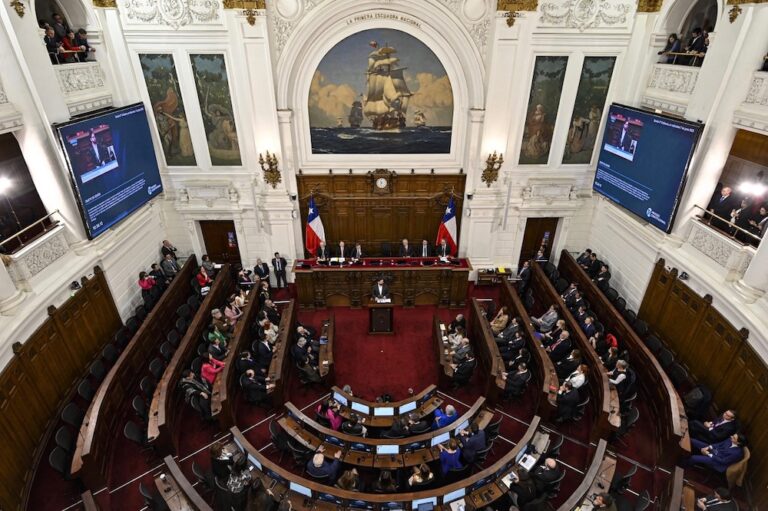AMARC applauds the rapid response of Chile's community radio stations to the recent earthquake and calls for legal measures to facilitate community broadcasting.
(AMARC/IFEX) – AMARC, the World Association of Community Radio Broadcasters, applauds the rapid response of Chile’s community radios to the recent earthquake and calls on the incoming Chilean government to expedite legal measures to facilitate community broadcasting.
Community radios in Chile have demonstrated a vital role in humanitarian response to the earthquake and tsunami that struck Chile on 27 February 2010. An estimated 100 small community radio stations are located in areas of the country that have been strongly or severely affected by the earthquake. Many have continued broadcasting with the aim of ensuring vital information despite themselves experiencing significant impact.
Within four days of the disaster a daily special broadcast, “Noticiero Ciudadano”, was launched as a joint initiative of Radio Juan Gómez Millas, Radio Tierra, La Radioneta and ECO Comunicaciones, together with the cooperation of Radio Placeres, Radio El Encuentro, Radio la Ventana and journalists on the ground in the most affected zones.
The programmes provide vital news and information to keep citizens informed of the public response to the disaster and to assist in obtaining access to aid and support.
Despite their vital role in humanitarian response to disaster, many community radio stations in Chile operate with very low power pending the enactment of the Community Radio Act which is currently under review by the Constitutional Court. The proposed law has many weaknesses but would at least set in place minimum standards to guarantee the right to communicate and to enable the establishment of community broadcasting services operated by civil society organisations.
AMARC urges the new government of Sebastian Piñera to take immediate steps to expedite the passage of legislation that will enable, protect and encourage community broadcasting. At the same time it also calls for the threat of imprisonment or seizure of equipment that is contained in the Telecommunications Act of 1982 to be replaced with a regulatory framework for community broadcasting that is consistent with a democratic system of rights and international standards on freedom of expression.


